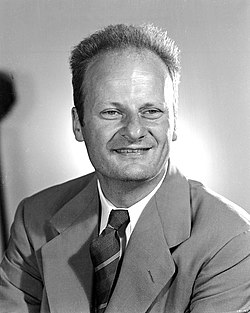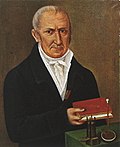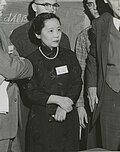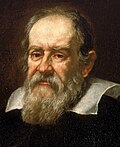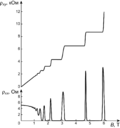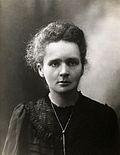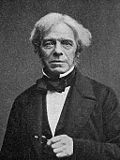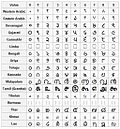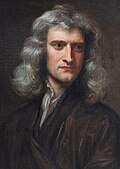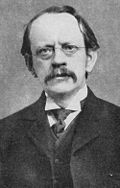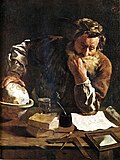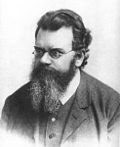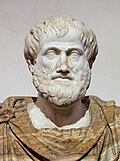Portal:Physics
The Physics Portal


Physics is the scientific study of matter, its fundamental constituents, its motion and behavior through space and time, and the related entities of energy and force. It is one of the most fundamental scientific disciplines. A scientist who specializes in the field of physics is called a physicist.
Physics is one of the oldest academic disciplines. Over much of the past two millennia, physics, chemistry, biology, and certain branches of mathematics were a part of natural philosophy, but during the Scientific Revolution in the 17th century, these natural sciences branched into separate research endeavors. Physics intersects with many interdisciplinary areas of research, such as biophysics and quantum chemistry, and the boundaries of physics are not rigidly defined. New ideas in physics often explain the fundamental mechanisms studied by other sciences and suggest new avenues of research in these and other academic disciplines such as mathematics and philosophy.
Advances in physics often enable new technologies. For example, advances in the understanding of electromagnetism, solid-state physics, and nuclear physics led directly to the development of technologies that have transformed modern society, such as television, computers, domestic appliances, and nuclear weapons; advances in thermodynamics led to the development of industrialization; and advances in mechanics inspired the development of calculus. (Full article...)
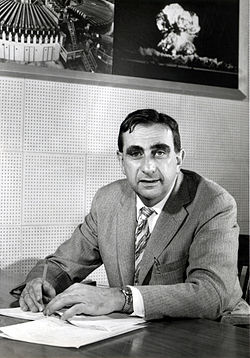
Edward Teller (Hungarian: Teller Ede; January 15, 1908 – September 9, 2003) was a Hungarian and American theoretical physicist and chemical engineer who is known colloquially as "the father of the hydrogen bomb" and one of the creators of the Teller–Ulam design based on Stanisław Ulam's design. He had a volatile personality, and according to Richard Rhodes in his book Dark Sun, was "driven by his megaton ambitions, had a messianic complex, and displayed autocratic behavior." A thermonuclear design he devised was an Alarm Clock model bomb with a yield of 1000 MT (1 GT of TNT) and proposed delivering it by boat or submarine. It would be capable of incinerating an entire continent.
Born in Austria-Hungary in 1908, Teller emigrated to the United States in the 1930s, one of the many so-called "Martians", a group of prominent Hungarian scientist émigrés. He made numerous contributions to nuclear and molecular physics, spectroscopy (in particular the Jahn–Teller and Renner–Teller effects), and surface physics. His extension of Enrico Fermi's theory of beta decay, in the form of Gamow–Teller transitions, provided an important stepping stone in its application, while the Jahn–Teller effect and the Brunauer–Emmett–Teller (BET) theory have retained their original formulation and are still mainstays in physics and chemistry. According to Freeman Dyson, Teller thought about his problems using basic principles of physics and often discussed with other cohorts to make headway through difficult problems. This was seen when he worked with Stanislaw Ulam to get a workable thermonuclear fusion bomb design (a solution to Teller's own classical thermonuclear bomb proposal) but later temperamentally (and with fury) dismissed Ulam's aid. Herbert York stated that Teller utilized Ulam's general idea of compression and heating to start thermonuclear fusion to generate his own sketch of a "Super" bomb that would work. Prior to Ulam's idea, Teller's classical Super was essentially a system for heating (using a fission bomb primary) uncompressed liquid deuterium to the point, Teller hoped, when it would sustain thermonuclear burning. It was, in essence a simple idea from physical principles, which Teller pursued with a ferocious tenacity even if he was wrong or shown that it wouldn't work. To get support from Washington for his Super weapon project, Teller proposed a thermonuclear radiation implosion experiment as the "George" shot of Operation Greenhouse. (Full article...)
Did you know -

- ...that if you ever saw Jupiter's magnetic field from Earth, it would appear five times larger than the full moon?
- ...that the impact of a raindrop would be fatal if not for the property of fluid flow known as terminal velocity?
- ...that transits of Venus occur in a 243-year cycle?
Selected image -

Related portals
May anniversaries
- May 1, 1960 - U-2 spy plane shot down
- May 6, 1937 - Hindenburg fire
- May 9, 1012 BC – Solar Eclipse seen at Ugarit, 6:09–6:39 PM.
- May 9, 1904 – City of Truro, a steam locomotive exceeds 100 mph (160 km/h).
- May 10, 1946 – V-2 rocket's first successful launch at White Sands Proving Ground
- May 10, 1960 – The nuclear submarine USS Triton completes Operation Sandblast, the first underwater circumnavigation of the earth.
- May 11, 1862 – American Civil War: The ironclad CSS Virginia is scuttled in Virginia.
- May 11, 1995 – In New York City, over 170 countries extend Nuclear Nonproliferation Treaty indefinitely, without conditions.
- May 11, 1998 – India conducts three underground nuclear tests, including a thermonuclear device.
- May 14, 2018 - Ennackal Chandy George Sudarshan died.
- May 16, 1960 - Theodore Maiman operates the first optical laser, at Hughes Research Laboratories in Malibu, California.
- May 16, 1969 – Venera 5, a Soviet spaceprobe, lands on Venus.
- May 17, 1865 – The International Telegraph Union is established.
- May 18, 1974 - India conducts underground nuclear tests, named Smiling Buddha.
- May 18, 1998 - Microsoft sued by US Government
- May 19, 1943 - RAF uses bouncing bombs in combat
- May 20, 1932 - Amelia Earhart crosses Atlantic Ocean
- May 26, 1972 - President Nixon and Leonid Brezhnev sign nuclear weapon non-proliferation pact.
- May 24, 1844 - First official telegraph message is sent by Samuel Morse.
- May 27, 1937 - Grand opening, Golden Gate Bridge
- May 28, 1998 – Pakistan conducts five underground nuclear tests, named Chagai-I.
Births
- May 6, 1872 - Willem de Sitter, physicist, mathematician, and astronomer
- May 9, 1931 – Vance Brand, astronaut
- May 10, 1746 – Gaspard Monge, mathematician
- May 10, 1788 – Augustin-Jean Fresnel physicist
- May 10, 1963 – Lisa Nowak, astronaut
- May 11, 1918 – Richard Feynman, physicist
- May 14, 1686 - Gabriel Fahrenheit, physicist and engineer
- May 21, 1921 - Andrei Sakharov, nuclear physicist
Deaths
- May 10, 1482 – Paolo dal Pozzo Toscanelli, mathematician and astronomer
- May 16, 1830 – Joseph Fourier, French scientist
- May 17, 1916 – Boris Borisovich Galitzine, Russian physicist
General images
Categories

Fundamentals: Concepts in physics | Constants | Physical quantities | Units of measure | Mass | Length | Time | Space | Energy | Matter | Force | Gravity | Electricity | Magnetism | Waves
Basic physics: Mechanics | Electromagnetism | Statistical mechanics | Thermodynamics | Quantum mechanics | Theory of relativity | Optics | Acoustics
Specific fields: Acoustics | Astrophysics | Atomic physics | Molecular physics | Optical physics | Computational physics | Condensed matter physics | Nuclear physics | Particle physics | Plasma physics
Tools: Detectors | Interferometry | Measurement | Radiometry | Spectroscopy | Transducers
Background: Physicists | History of physics | Philosophy of physics | Physics education | Physics journals | Physics organizations
Other: Physics in fiction | Physics lists | Physics software | Physics stubs
Physics topics
Classical physics traditionally includes the fields of mechanics, optics, electricity, magnetism, acoustics and thermodynamics. The term Modern physics is normally used for fields which rely heavily on quantum theory, including quantum mechanics, atomic physics, nuclear physics, particle physics and condensed matter physics. General and special relativity are usually considered to be part of modern physics as well.
More recognized content
Associated Wikimedia
The following Wikimedia Foundation sister projects provide more on this subject:
-
Commons
Free media repository -
Wikibooks
Free textbooks and manuals -
Wikidata
Free knowledge base -
Wikinews
Free-content news -
Wikiquote
Collection of quotations -
Wikisource
Free-content library -
Wikiversity
Free learning tools -
Wikivoyage
Free travel guide -
Wiktionary
Dictionary and thesaurus
Sources
Portals on Wikipedia






